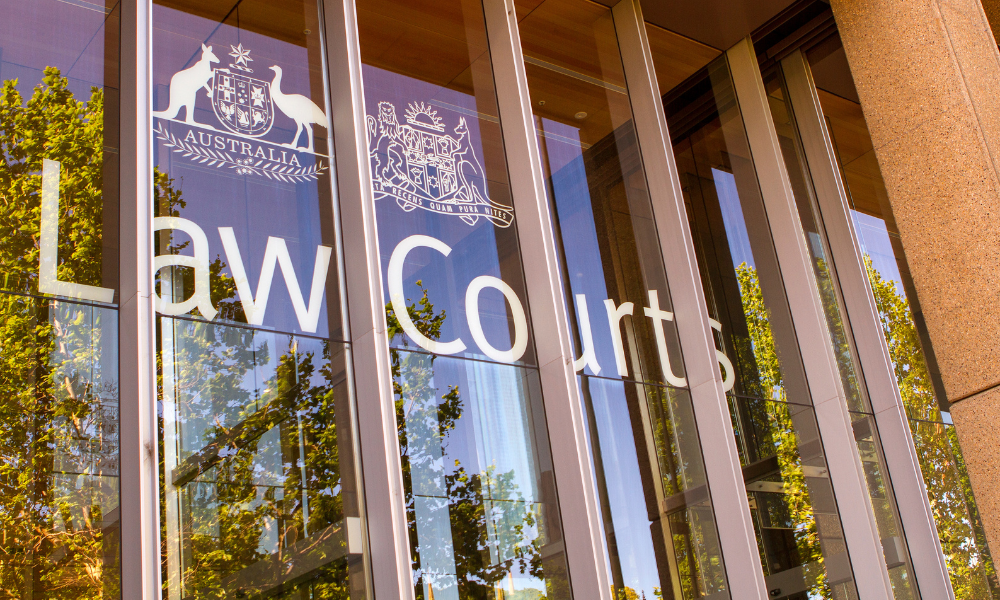
The other party repeatedly asserted his desire to practice law and support his family

The ACT Court of Appeal has dismissed the case against the Council of Law Society of ACT over the denial of a practising certificate.
In Ezekiel-Hart v Council of the Law Society of the ACT [2023] ACTCA 5, Emmanuel Tam Ezekiel-Hart sued the Council and its president because of the Council’s decision not to grant a practising certificate entitling him to practise as a lawyer from 2020 to 2021. Over the course of the proceedings, the court made a number of orders, including the dismissal of an application for summary judgment by the applicant, striking out of a further amended statement of claim (FASC) filed by the applicant, granting of leave to the defendants to apply for the proceedings to be summarily dismissed, and the ultimate dismissal of the proceedings. Ezekiel-Hart sought leave to appeal those orders.
The proceedings started in the Supreme Court in 2020, but litigation between the parties dates back to 2009. The Supreme Court struck out Ezekiel-Hart’s claim and noted that the “structure of the pleading is embarrassing… it contains rolled up allegations and language that is confusing.” The applicant was given several opportunities to amend his statement of claim. In 2022, he filed a FASC containing 239 paragraphs and one of those had 323 sub-paragraphs. The FASC was eventually struck out.
Ezekiel-Hart proposed 61 grounds of appeal before the Court of Appeal, but the court noted that none of these grounds addressed the fundamental question regarding the adequacy of his FASC. The court noted that there are two “touchstone” criteria in determining whether to refuse or grant leave to appeal from an interlocutory decision. First, whether the decision was attended with sufficient doubt to warrant it being reconsidered. Second, whether substantial justice would result if leave was refused, supposing the decision was wrong.
The appeal court noted that nowhere in the applicant’s written submissions, affidavits, or oral arguments did the applicant come to terms with the need to demonstrate arguable error on the part of the court when it ordered striking out the FASC. The issue before the court was whether the FASC complied with the rules, but no argument was presented with reference to any of the relevant rules or any rules at all.
The court observed that “the FASC presents as a document drafted and settled by a person who has at best a tenuous grasp of legal principle and principles of pleading, and who has such strong opinions about the subject matter as to be incapable of any degree of detachment. It is convoluted, repetitive and conclusory.”
The court also noted that the FASC identified specific facts but failed to proceed chronologically and did not point to the date of the event or document that was being referred to. It emphasised alleged “admissions” without identifying when or how they were made or their contents. It made no separation between allegations of fact and more or less sweeping conclusions based on those facts.
The appeal court was satisfied that the FASC should be struck out as it would tend to prejudice, embarrass or delay the fair trial of the proceeding. The court further found that it was scandalous or vexatious and contained unnecessary material and an abuse of process of the court.
The appeal court further said that the fundamental problem with the FASC was that it failed to give the respondents a fair understanding of the claim made by the applicant and an opportunity to respond to them. The court also found that the order dismissing the applicant’s application for summary judgment was inevitable once the FASC had been struck out. The court noted that it would be “incongruous and unjust” to give summary judgment for the plaintiff because he failed to plead all relevant facts in such a way that the defendants could be expected to respond.
Overall, the appeal court found that the applicant had failed to demonstrate that any of the decisions which he would seek to challenge on appeal were attended with sufficient doubt to warrant them being reconsidered.
The appeal court noted that the applicant repeatedly asserted his desire to practise law and support his family. However, the court pointed out that even if the proceedings he attempted to bring were successful, it would not entitle him to practise law in the future because a practising certificate for the year 2020 to 2021 would not allow him to practice after the expiry of that practicing year. The court also emphasised there was nothing to prevent Ezekiel-Hart from applying for a practising certificate for the current, or any future, practising years.
Accordingly, the court dismissed the application for leave to appeal.